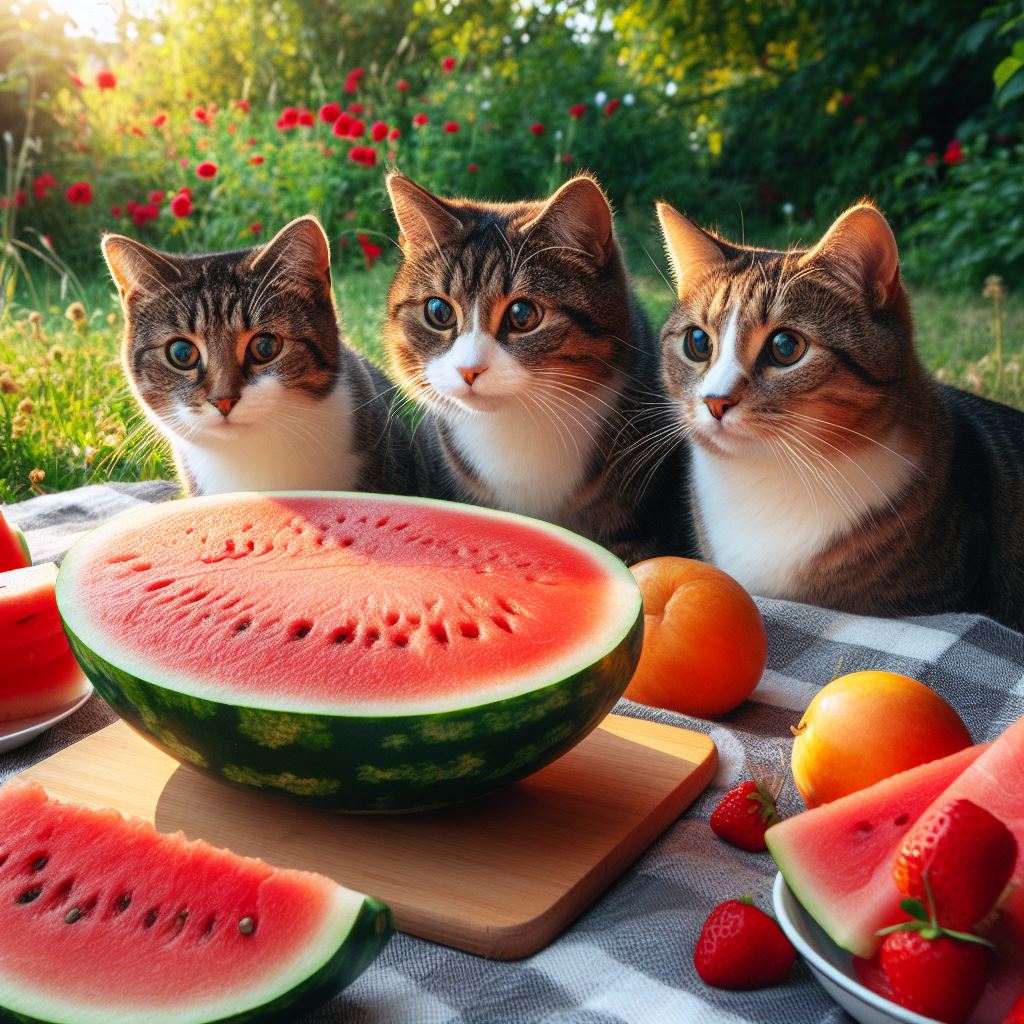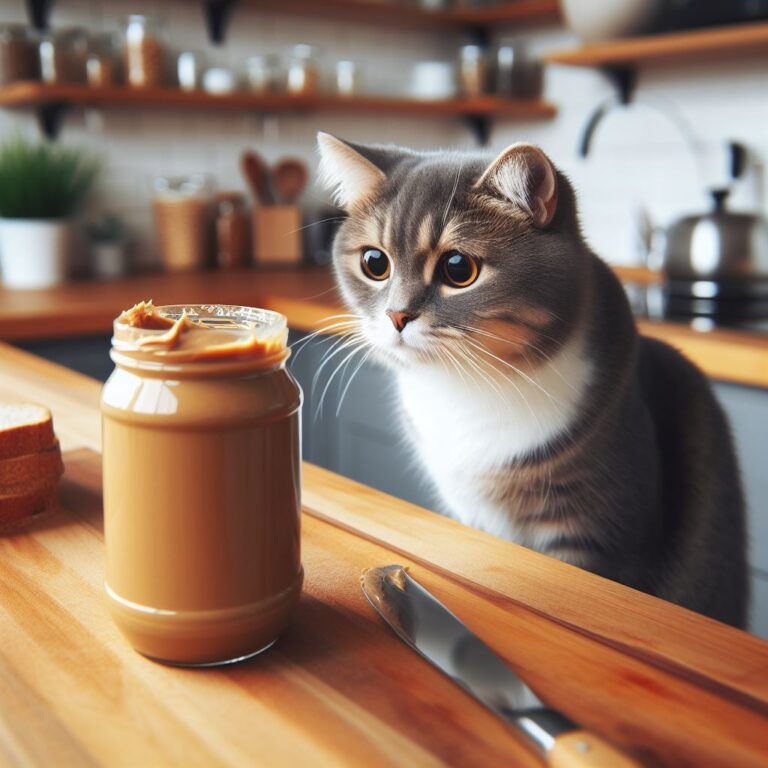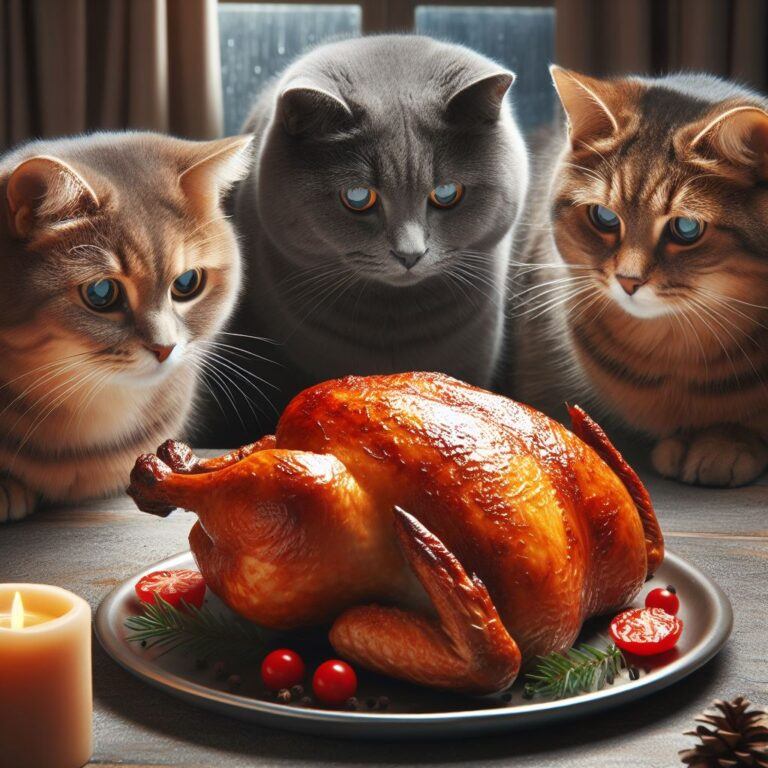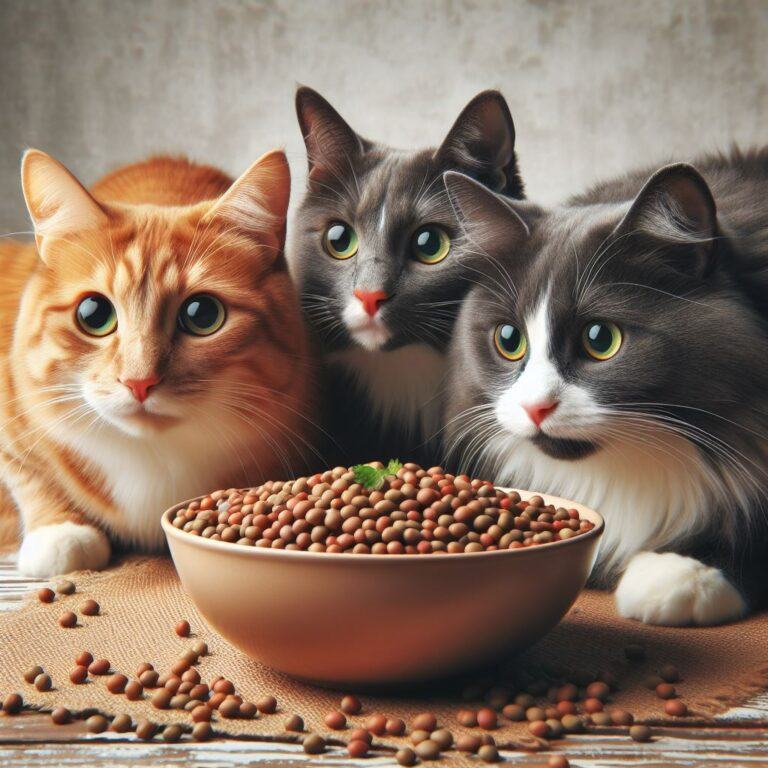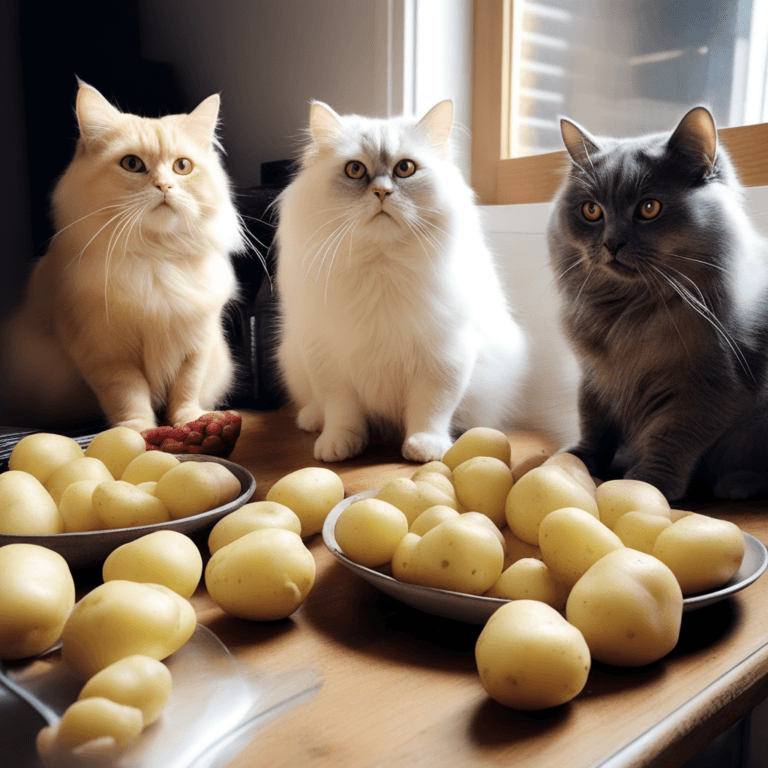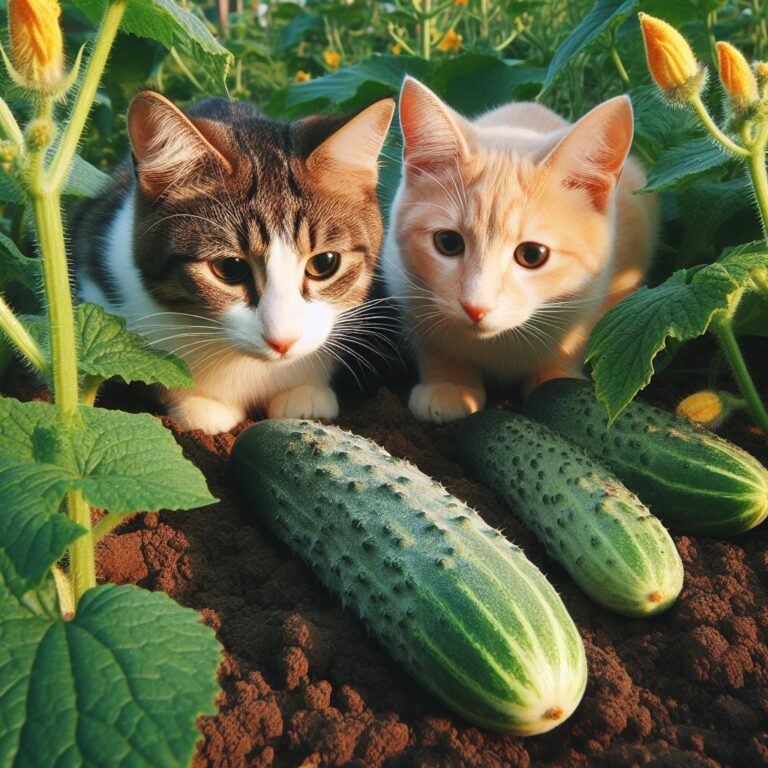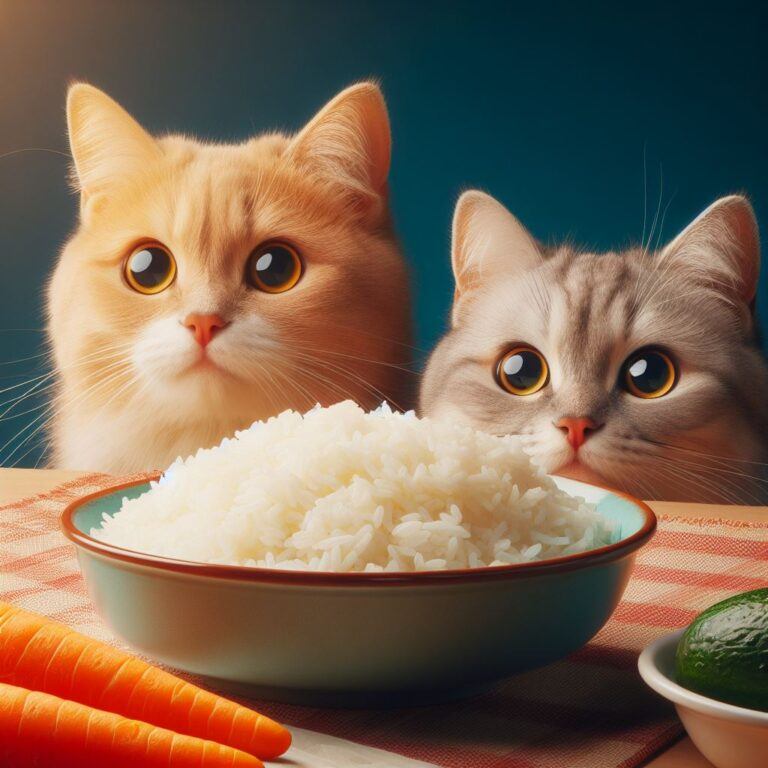Can Cats Safely Eat Watermelon
Yes, cats CAN safely eat watermelon in moderation as a treat. I stress ‘treat’ because watermelon should not replace their regular diet but rather serve as an occasional snack.
Consider watermelon the equivalent of a sweet delight for your cat, akin to a rare dessert on a human’s dinner table. It’s critical to respect portion control to maintain the balance in your cat’s diet.
A small piece, devoid of seeds and rind, is adequate for your feline friend.
Not all cats will like watermelon, and that’s okay. For those with a curious palate, watermelon can be refreshing, especially during warm weather due to its high water content.
However, it’s essential to be aware of potential risks. Seeds could cause intestinal blockage, and the rind may lead to gastrointestinal upset.
Continue reading as I break down the nutritional implications of feeding your cat watermelon, ensuring you’re well-informed on how this fruity treat fits into their overall diet.
Understanding the Nutritional Impact of Watermelon on Felines
Cats are obligate carnivores, which means their diet should predominantly consist of meat such as cooked chicken or beef. However, introducing small amounts of fruits like watermelon can offer a change of pace in their mostly protein-based diet.
While watermelon is not harmful to cats in small quantities, it’s essential to understand its nutritional profile and how it aligns with feline dietary requirements.
Watermelon is rich in water and also provides vitamins A and C, as well as dietary fiber. In contrast, cats require high levels of protein, taurine, and other amino acids that watermelon lacks.
Hence, while watermelon can contribute to hydration, especially beneficial during hot weather, it should not replace their regular nutrient-rich meals.
I’ve discussed this topic with several veterinarians who agree that while occasional fruit treats are generally safe for cats, any additions to their diet should be introduced slowly and monitored for any negative reactions.
They stress that the treat is just that—a treat—and should never comprise a significant portion of the diet.
Importantly, too much watermelon or its seeds can cause digestive upset in cats. The high sugar content can also be a concern, particularly for overweight cats or those with diabetes.
As a preventive measure, offering seedless watermelon in moderation ensures a tasty treat without unnecessary risks.
Best Practices for Introducing Watermelon to Your Cat
If you’ve decided to give your cat a taste of watermelon, you’ll want to do it the right way. Start with a small piece, ensuring it’s free of seeds and rind to avoid any choking hazards or digestive issues.
Watch how your cat reacts to this new treat both during and after consumption. Observing is key. If there’s any negative reaction, like gastrointestinal upset, it’s a clear sign to halt the watermelon trials.
Pay close attention post-treat time. Cats can be sensitive to changes in their diet, and even a small piece of watermelon might cause an upset in some felines.
Should you notice any unusual behavior or health issues, it’s vital to reach out to your veterinarian promptly to ensure your cat’s safety and well-being.
Remember, watermelon should only be a rare treat and not a regular part of your cat’s diet. Its nutritional value is limited for felines, and too much can lead to obesity and other health problems.
A balanced diet tailored to your cat’s individual needs is always the best approach, and your vet can provide tailored advice and guidelines.
For a fun and safe way to include watermelon as an occasional treat, consider freezing small pieces to make a cool summer snack. Just ensure that you’re providing a balanced diet alongside these treats, and you can enjoy watching your cat experience something new without risking their health.

